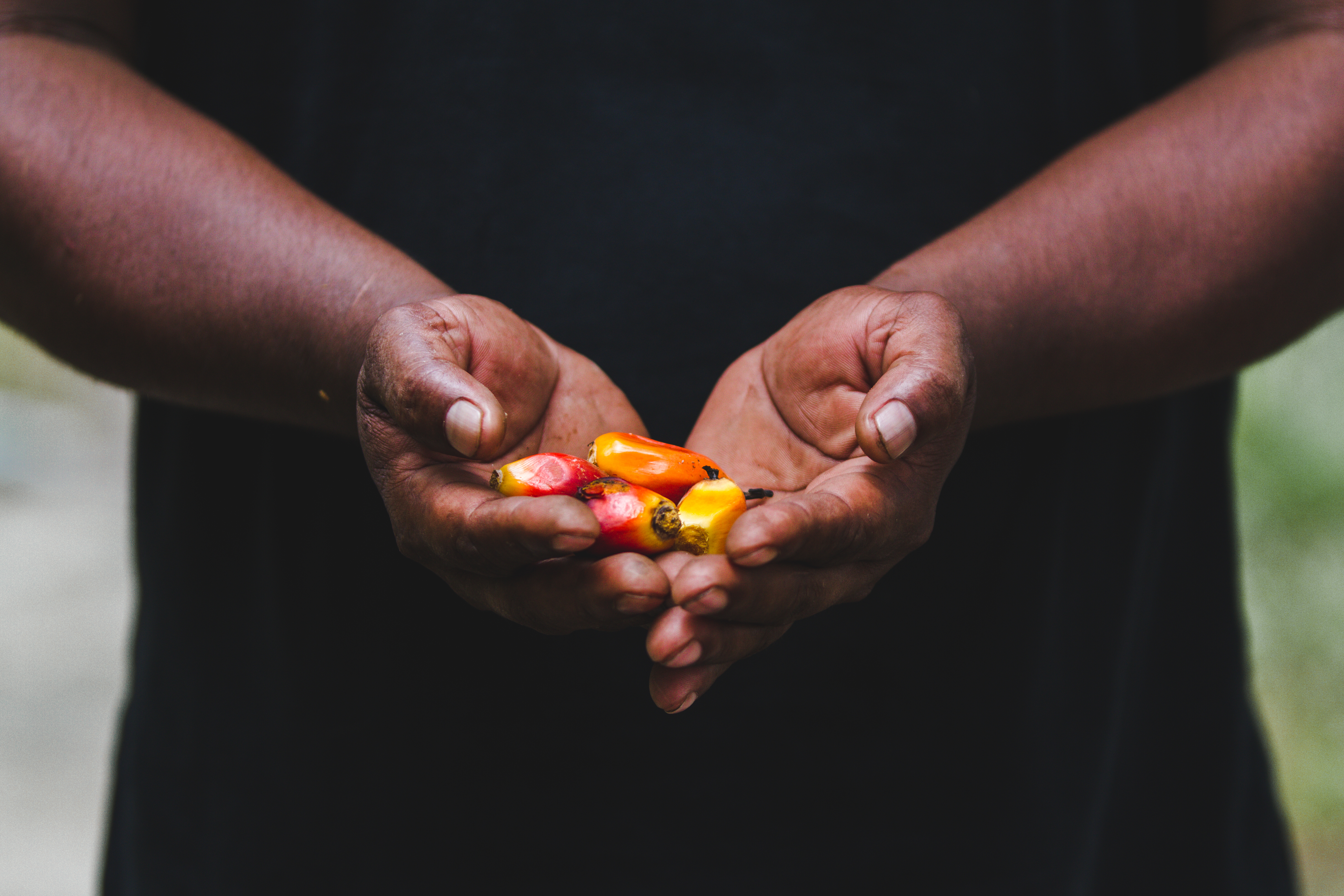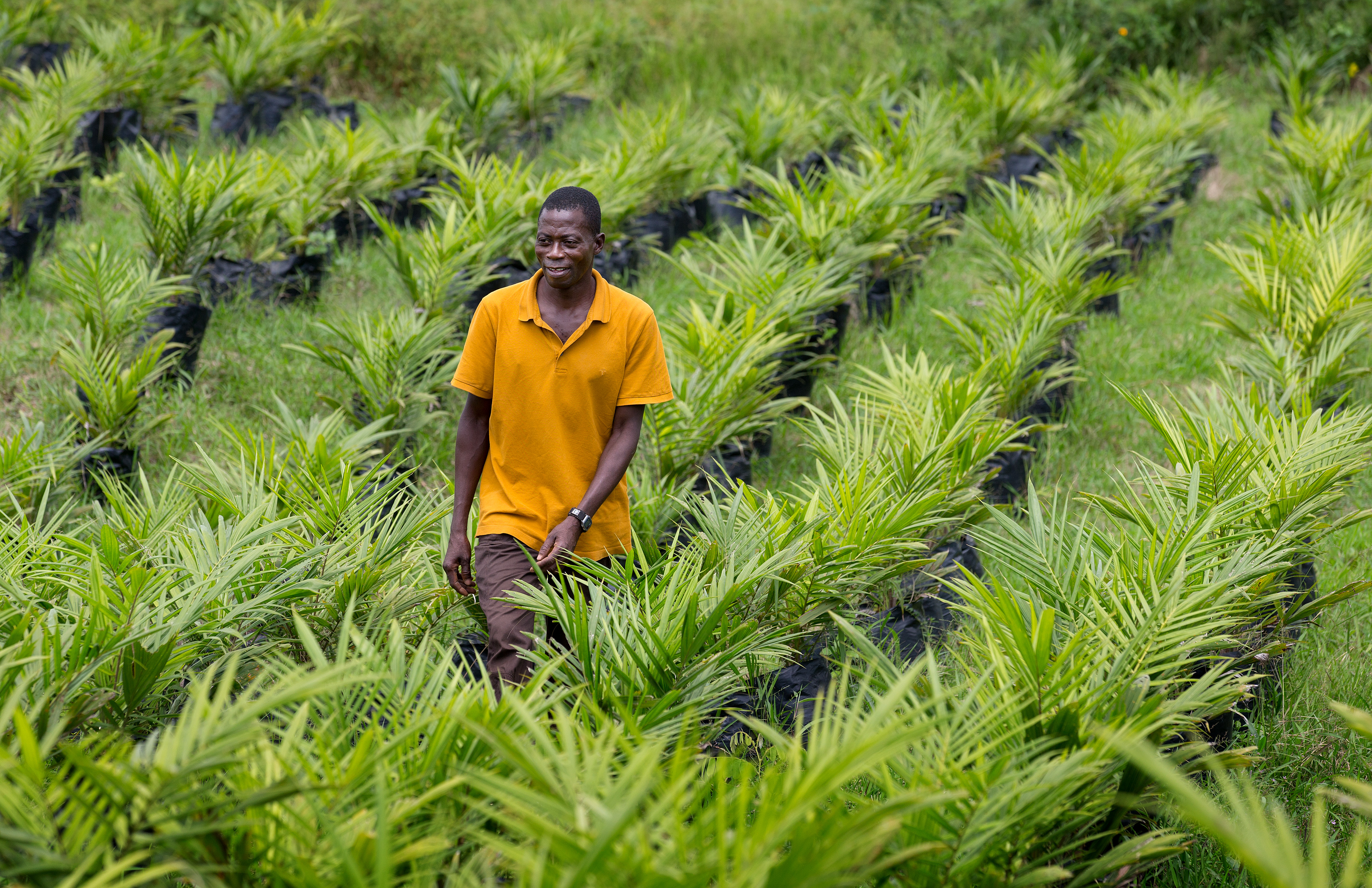Solving sustainability and inclusiveness policy decision-making challenges in Liberia’s palm-oil concessions sector
Picturing a Sustainable Palm Oil Future
July 10, 2023

In 2020 policymakers in the Inter-Ministerial Commission on Palm Oil Concessions in Liberia faced a challenge in deciding how to accelerate the development of the country's palm oil sector. The Government of Liberia had prioritized the development of more sustainable palm oil concessions, but there were many commercial and social challenges and trade-offs to address to formulate a policy framework on palm oil that could work for all and be sustainable.
Contradictory forest management and concessions policies, the eagerness of communities and smallholder producers to engage in palm oil concessions because they bring employment and socioeconomic benefits, and concerns in the global market about the environmental risks of palm oil production were among the factors the Commission had to balance, in common with many other countries facing these challenges.
In Liberia the Commission requested that UNDP's policy-relevant economic analysis tool, Targeted Scenario Analysis (TSA), should be applied to design a mutually beneficial and sustainable policy path for communities, sectoral government agencies, and palm oil concessionaires. As they developed the National Oil Palm Strategy and Action Plan (NOPSAP) facilitated by the Global Environment Facility funded Good Growth Partnership [LINK], policymakers found they lacked economic data that clearly compared the outcomes of carrying on with conventional palm production with the results of taking a more sustainable route to make sound, informed decisions leading to sustainable palm concessions. UNDP's TSA provided an answer, enabling the Commission to weigh relevant social, environmental, and economic impacts and foresee the consequences of continuing with conventional production or shifting to a path leading to deforestation-free palm oil concessions. This shift was instrumental in reactivating palm oil production.
How was this possible? TSA improves the decision-making process by capturing and presenting the value of ecosystem services along with sectoral production so that policy decision-making can be more holistic. TSA makes a direct comparison between two policy scenarios, a Business-As-Usual (BAU) scenario, in which the status quo conditions, unsustainable management, and investment policies are projected into the future, and a so-called Sustainable Ecosystem Management (SEM) scenario, which introduces improvements in the management of ecosystem and natural resources into sector development policy and investment.
A vital element of a TSA is that it is conducted for a particular productive sector with a specific public or private decision-maker(s) in mind. The TSA targets decision-makers from the commodity sector, the central or regional financing agencies, and the private sector. Focusing on a specific decision maker(s) increases the likelihood that the data generated through the TSA is used and translated into a more effective and efficient allocation of public and private investment.
TSA shifts away from traditional economic valuation methods that generate policy-isolated point estimates or single static values towards a long-term analysis, showing year-over-year changes between BAU and SEM scenarios. This approach is critical for decision-making, as decisions are rarely made based on single numbers in isolation but rather by comparing at least two policy options over time.

The end product of the TSA is a package of policy recommendations supported by evidence-based economic data applied to each indicator of the benefits of shifting from BAU to SEM and a road map to implement the recommendations.
In this case, using a range of indicators including revenue, investment, forest cover, carbon value, direct, indirect and female employment, and access to education, healthcare and housing in Liberia, the TSA compared conventional palm oil production models in large concessions in the Business-As-Usual scenario with a smallholder-centered production model (SPO) that complies with the Roundtable on Sustainable Palm Oil standards and incorporates the costs of maintaining critical ecosystems services. The TSA showed that prioritizing smallholders' engagement and environmental sustainability is in the best interests of the concessionaire and the Liberian economy. The TSA estimated that the SPO scenario offers substantially greater returns than the BAU scenario, i.e., USD 333 million versus USD 188 million over the next 20 years. This is primarily due to the SPO scenario including the provision of affordable credit for smallholder oil palm development, and the SPO scenario maintains all primary forest and at least 60% of secondary forest, to reflect compliance with RSPO global market requirements.
The TSA results were presented and discussed with the National Oil Palm Platform of Liberia to ensure effective multistakeholder engagement and the decision to support the SPO scenario is fully reflected in the endorsement of NOPSAP by government and in the approved RSPO national interpretation by all relevant stakeholders, paving the way towards sustainable palm oil development in Liberia.
UNDP's Global Head of FACS, Andrew Bovarnick, sees TSAs as a key element in transforming food systems worldwide:
"We now have TSA Reports underpinning policy in more than 20 countries, covering food, agriculture, and other resources, including tourism and gold mining. As with all the TSAs it led to the provision of information key for the policy makers to make a more informed and in the end sustainable policy decision. The Liberia TSA results showing $145 million extra returns over 20 years when ecosystem services are accounted for combined with additional 107,000 hectares of forest coverage compared to the BAU scenario was key for the Commission to make robust policy arguments for promoting the sustainable palm oil model as part of its NOPSAP. As such we encourage practitioners and policy makers to utilize TSA in future policy making."
For more TSA reports from around the globe click here:

 Locations
Locations



